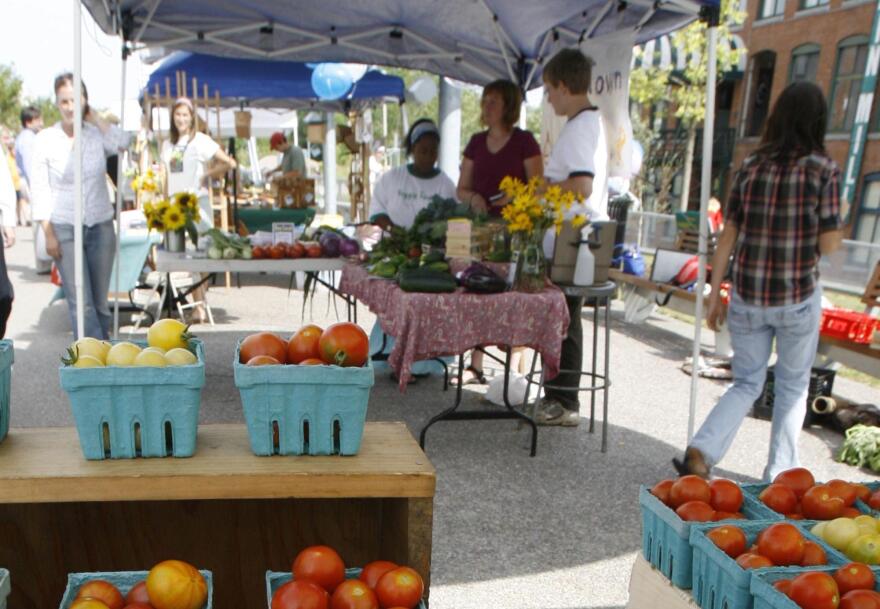In the past several decades, farmers markets have developed into a significant source of sales of Vermont agricultural products, driven by increasing demand for local food.
Winter markets and even virtual farmers markets are one sign of success.
In recent years, though, the number of summer and winter markets has leveled out.
In fact, there are fewer farmers markets opening this spring.
Erin Buckwalter of the Northeast Organic Farming Association of Vermont, counts 76. NOFA is the parent organization for the Vermont Farmers Market Association.
Buckwalter says many popular markets have waiting lists, so newer growers are turning to a virtual farmers market.
“There’s more competition than there was 30 years ago, so people are getting a little bit more creative and trying out new business models,” she says. “We also have some online markets, which are a new thing that’s happened over the last few years.”
In the online farmers markets listed at yourfarmstand.com, groups of farms list products available. Consumers can order from several farms, then pickup their order at a specified day and time at one location.
Buckwalter says every market has its own rules, but the Farmers Market Association encourages members to be producer-only, meaning the person who sells the product is the one who grew or made it.
But interesting issues often arise, such as the person who goes fishing in Alaska and brings back wild salmon to sell at market.
“He might fit under some producer-only market rules, but then also some markets have a rule about where the food comes from – how far away, is it local. There’s a whole host of complex things that every market board tries to figure out what makes sense for their market and some are more limiting than others,” says Buckwalter.
The popularity of selling prepared foods at farmers markets also raises questions about what constitutes "local."
“Some say, ‘You’re cooking it and you’re a local business. We want to support you so you can vend at our market,’” says Buckwalter. On the other hand, “the Brattleboro winter market, for example, has really strict guidelines about what percentage of the food that the prepared food vendor uses has to be local.”
Recently the U.S. Department of Agriculture awarded a $500,000 grant to NOFA and the Vermont Law School to develop a legal resources toolkit for farmer’s markets nationally.
Laurie Ristino, director of the Center for Agriculture and Food Systems at the law school, says the goal is to build stronger farmers market organizations.
According to Ristino, “There’s not a lot of resources for farmers markets and the people who manage them to decide how best to organize themselves; whether they incorporate, how they arrange for their space, do they lease, what kind of contracts do they have – all those basic things that any business would have to consider.”
The four-year project will focus on helping farmers markets with governance policies, liability issues and risk management.
Copyright 2014 WVPS-FM. To see more, visit http://www.vpr.net.9(MDAxODM1Njk5MDEyMTY5MDg4MzEyOTc5Ng004))







